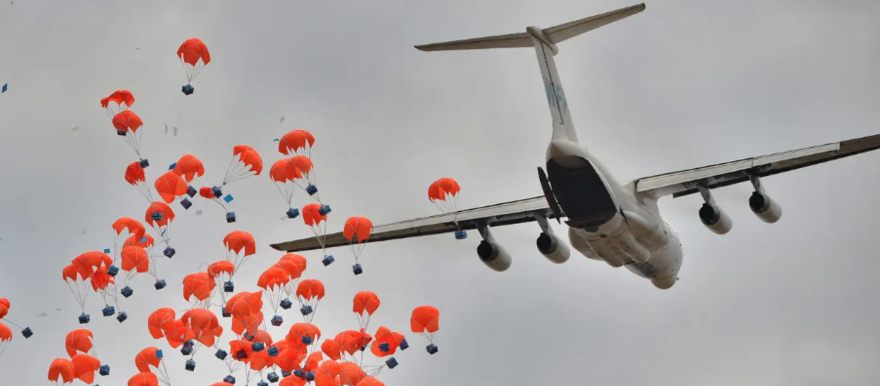Humanitarian partners in South Sudan have called for the urgent removal of recently imposed taxes and charges, saying it negatively impacts the delivery of relief aid across the country.
A Sunday press statement from the United Nations Office for the Coordination of Humanitarian Affairs (OCHA) said more than 60,000 people have already been affected after the United Nations was forced to pause life-saving airdrops of food assistance as fuel runs low. This number will increase to 140,000 by the end of May, should the measures remain in place.
Acknowledging the assurances by many members of the Government of South Sudan that humanitarians are exempt, Ms. Anita Kiki Gbeho, the Humanitarian Coordinator for South Sudan, urged action by the government on these assurances to prevent humanitarian operations by the United Nations and Non-Governmental Organizations (NGOs) from coming to a standstill.
“We have already had to pause airdrops, which is impacting families in the hardest-to-reach locations within the context of already pared-back humanitarian operations,” Kiki said. “We call on the Government of South Sudan to uphold all agreements with humanitarians, including our NGO partners, and immediately remove new taxes and fees so that we can continue to support people in need.”
Since February, the Government of South Sudan has imposed new taxes and charges at border crossings and in the country. Although the Government has assured that these taxes will be removed, there has been no written commitment.
These measures would add US$339,000 monthly to the cost of food assistance and the United Nations Humanitarian Air Service (UNHAS) operations. This is enough to feed over 16,300 people for a month.
“It is vital that our limited funds are spent on saving lives and not bureaucratic impediments,” underscored the Humanitarian Coordinator.
An estimated 9 million people in South Sudan need protection and humanitarian assistance in 2024. The 2024 Humanitarian Needs and Response Plan (HNRP) reflects the Humanitarian Country Team’s appeal of $1.8 billion to reach 6 million of the most vulnerable people in extreme acute situations with urgent vital support. As of April 2024, only 18.5 percent of the 2024 HNRP is funded. The imposition of new taxes contravenes the Status of Forces Agreement signed by individual agencies with the Government of South Sudan and Section 7 of the Convention on the Privileges and Immunities of the United Nations, which exempts the United Nations from all direct taxes and duties on imports of supplies for its official use.
An estimated 7.1 million people are projected to be at risk of experiencing high levels of acute food insecurity during this year’s lean season, with 79,000 people at risk of catastrophic levels of food insecurity according to the Integrated Food Security Phase Classification (IPC). As of 28 April, more than 650,000 people have arrived in South Sudan from Sudan, most of whom urgently need humanitarian assistance.
Some of the new taxes and charges at border crossings that the government has imposed since February include Electronic Cargo Tracking Note (ECTN) at $300/lorry, reduced from $350 on 22 April; E-Petroleum Accreditation Permit of $0.05/liter of fuel; Exemption Fee of $100/lorry; Lab test on food rations at $100/lorry; Security Escort Fee of 30,000 South Sudanese pounds ($19)/lorry. This week, for the first time, UN-contracted fuel trucks were also alerted to a Fuel Marking Fee of $0.024/liter or an average of $840/tanker.
Humanitarian aid delivered by the United Nations, NGOs, or donor-funded organizations is exempt from taxes, which adds significant costs to humanitarian programs. A two-month exemption on the ECTN for United Nations entities was granted; however, there has been no written commitment from the Government of South Sudan to maintain this or provide other exemptions.




